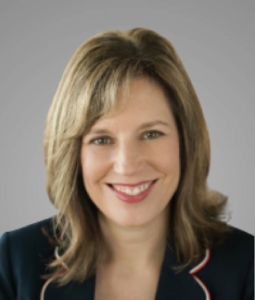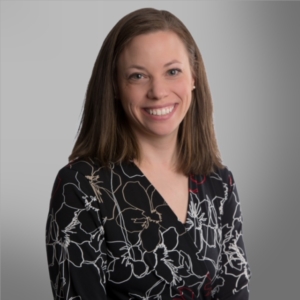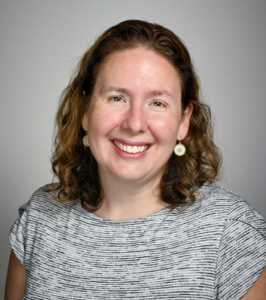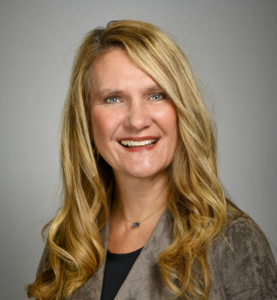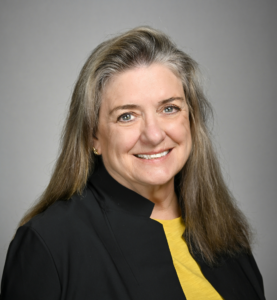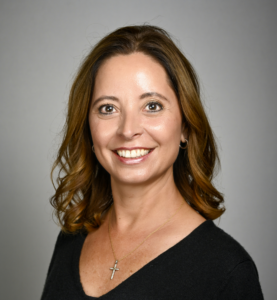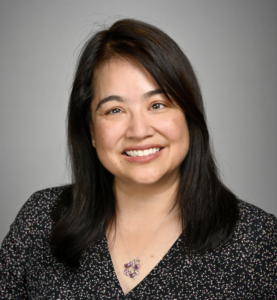Home / Awards & Grants / Optometrists & Vision Scientists
Awards of Recognition
AAOF Excellence in Diversity Awareness and Education
The AAOF Excellence in Diversity Awareness and Education award is presented for excellence in the initiation, education, and support of programs that support diversity, equity, and inclusion and belonging in optometry. This award will be presented at the Academy Awards Ceremony
Nomination Requirements
- Fellows will be given preference for this award, but Fellowship is not required.
- Nominations should consist of a letter from a Fellow nominating a candidate for the award. This letter should be accompanied by the candidate’s curriculum vitae. A letter from another Fellow, seconding the nomination, should also be provided.
- Although their diversity initiatives within the Academy would be the top criterion for receiving this honor, the candidate’s activities outside of the Academy will be considered as well.
- This award is intended to recognize individuals who have pioneered diversity initiatives that encourage awareness and education.
- This award will be given annually, or as qualified candidates are identified.
- All materials must be emailed to Helen Viksnins at HelenV@aaoptom.org by April 1.
AAOF Outstanding Emerging Leader Award
The AAOF Outstanding Emerging Leader Award is presented to the individual who has displayed exceptional potential as a leader in the profession of optometry. This award will be presented at the Leadership Capstone.
Nomination Requirements
- Individuals nominated must be Fellows. They also should be within 10 years of their terminal degree.
- Extensions to the timeline, with documentation from the nominee’s employer, will be granted for events that would typically lead to an extension to or exclusion of time from a tenure clock, including but not limited to the birth of a child.
- Nominations should consist of a letter from a Fellow nominating a candidate for the award. This letter should be accompanied by the candidate’s curriculum vitae. A letter from another Fellow, seconding the nomination, should also be provided.
- Although their leadership – and potential leadership – within the Academy would be a top criterion for receiving this honor, the candidate’s leadership activities outside of the Academy will be considered as well.
- This award will be given annually, or as qualified candidates are identified.
- All materials must be emailed to Helen Viksnins at HelenV@aaoptom.org by April 1.
American Academy of Optometry - Essilor Award for Outstanding International Contributions to Optometry
This award recognizes an individual(s) or organizations whose direct efforts and contributions have resulted in unquestionably significant and extraordinary advances in optometry and eye care internationally.
Since the Award is only to be made from nominations of truly extraordinary international contributions to optometry or eye care, it is not necessarily awarded every year.
Criteria
The recipient’s contributions should be clearly documented and self-evident, in that the excellence and importance of the contributions have been established and known to the international optometric community.
There are several ways in which the contributions might qualify for nomination, such as:
- The recipient’s contributions must be outside of the United States and Canada and have advanced excellence in optometric education and/or eye care in multiple countries or, alternatively, in a single country if the contribution results in a truly dramatic change in that country.
- Unusual contributions that might be demonstrated through one of many avenues including, but not limited to, research, education, patient care or legislative efforts.
- Unique contributions resulting in the improvement of eye care internationally, as in the instance of third world countries, where the delivery of services could be considered pioneering.
The deadline for nominations is April 1.
Nomination Requirements
- A letter of nomination from an Academy Fellow explaining why the nominee is deserving of the award.
- A letter from another Academy Fellow seconding the nomination.
- A copy of the nominee’s CV.
- All materials must be emailed to Helen Viksnins at HelenV@aaoptom.org by the deadline.
Brien Holden Humanitarian Award
This award recognizes an individual or organization who has made significant humanitarian contributions to improve or provide eye care to underserved or marginalized populations. In particular, it acknowledges efforts in the nonprofit/not-for-profit sector that build or support the development of sustainable systems for providing eye care in these populations.
The deadline for nominations is April 1.
Nomination Requirements
- A letter of nomination from an Academy Fellow explaining why the nominee is deserving of the award.
- A letter from another Academy Fellow seconding the nomination.
- A copy of the nominee’s CV.
- All materials must be emailed to Helen Viksnins at HelenV@aaoptom.org by the deadline.
Carel C. Koch Memorial Award
The Carel C. Koch Memorial Medal Award is presented to a person who has made outstanding contributions to the enhancement and development of relationships between optometry and other professions.
The recipient does not need to be a Fellow of the Academy or an optometrist. Also eligible are physicians, educators and others who have made an outstanding contribution worthy of national attention.
The deadline for nominations is April 1.
Nomination Requirements
- A letter of nomination from an Academy Fellow explaining why the nominee is deserving of the award.
- A letter from another Academy Fellow seconding the nomination.
- A copy of the nominee’s CV.
- All materials must be emailed to Helen Viksnins at HelenV@aaoptom.org by the deadline.
Charles F. Prentice Medal and Lecture Award
The Charles F. Prentice Medal Award is awarded annually to a distinguished scientist or clinician scientist in recognition of a career-long record of advancement of knowledge in vision science. The recipient of the Prentice Medal will present a special lecture at the annual Academy meeting related to these career achievements, highlighting one or more of their most significant scientific contributions. It is also expected the recipient will submit a manuscript on the topic to Optometry and Vision Science.
The deadline for nominations is April 1.
Nomination Requirements
- A letter of nomination from an Academy Fellow explaining why the nominee is deserving of the award.
- A letter from another Academy Fellow seconding the nomination.
- A copy of the nominee’s CV.
- All materials must be emailed to Helen Viksnins at HelenV@aaoptom.org by the deadline.
Garland W. Clay Award
The Garland W. Clay Award is presented to the author or authors of the most important paper published in Optometry and Vision Science during the preceding five years. The journal’s editorial board will judge importance by criteria that include, but are not limited to, the number of citations in the world scientific literature; impact on vision science; value to the practice of optometry; and relevance to the mission of the Academy.
The deadline for nominations is April 1.
Nomination Requirements
- A letter of nomination from an Academy Fellow explaining why the nominee is deserving of the award.
- A letter from another Academy Fellow seconding the nomination.
- A copy of the nominee’s CV.
- All materials must be emailed to Helen Viksnins at HelenV@aaoptom.org by the deadline.
Glenn A. Fry Lecture Award
The Glenn A. Fry Lecture Award is presented annually to a distinguished scientist or clinician scientist in recognition of the quality, significance, impact, and relevance to optometry of their current research contributions.
The recipient does not need to be a Fellow of the Academy or an optometrist. However, they must be at the mid-point of their career, worthy of the award, and highly likely to continue making important contributions to their field.
The awardee will present a special lecture at the annual Academy meeting related to their research, highlighting one or more of their most significant scientific contributions. It is also expected the recipient will submit a manuscript on the topic to Optometry and Vision Science.
The deadline for nominations is April 1.
Nomination Requirements
- A letter of nomination from an Academy Fellow, explaining why the nominee is deserving of the award.
- A letter from another Academy Fellow seconding the nomination.
- A copy of the nominee’s CV.
- All materials must be emailed to Helen Viksnins at HelenV@aaoptom.org by the deadline.
Honorary and Life Fellowship Award
The distinction of Life Fellowship and Honorary Life Fellowship recognizes those who have rendered distinguished service to the science and art of optometry.
The distinction of Life Fellowship recognizes a Fellow who has contributed significantly to the Academy and usually has many years of service.
The recipient of the Honorary Life Fellowship does not need to be a Fellow of the Academy or an optometrist.
The deadline for nominations is April 1.
Nomination Requirements
- A letter of nomination from an Academy Fellow explaining why the nominee is deserving of the award.
- A letter from another Academy Fellow seconding the nomination.
- A copy of the nominee’s CV.
- All materials must be emailed to Helen Viksnins at HelenV@aaoptom.org by the deadline.
Irvin M. and Beatrice Borish Award
The Borish Award recognizes an outstanding young scientist or clinician scientist who shows exceptional promise in conducting independent research directly related to etiology, prevention, detection, diagnosis or management of clinical ocular disorders.
At the time of nomination, a Borish Award nominee should be within six years of the date of completion of his or her final degree. Typically this degree will be a PhD but, in exceptional circumstances, current research accomplishments and promise for the future may qualify an individual for consideration with the degree Doctor of Optometry, Master of Science, or other professional or research degree.
If the nominee has been granted an extension to or exclusion of time from a tenure clock, as documented by the employer, this time may be used to extend the eligibility for this award.
It is not necessary for this award to be presented every year, and the recipient does not need to be a Fellow of the Academy or an optometrist.
The deadline for nominations is April 1.
Nomination Requirements
- A letter of nomination from an Academy Fellow explaining why the nominee is deserving of the award.
- A letter from another Academy Fellow seconding the nomination.
- A copy of the nominee’s CV.
- All materials must be emailed to Helen Viksnins at HelenV@aaoptom.org by the deadline.
Michael G. Harris Family Award for Excellence in Optometric Education
This award is presented to an optometric educator who has demonstrated ongoing and consistent excellence in educating optometry students and/or the advancement of optometric education. Candidates are judged by their contribution and excellence in optometric education by virtue of performance in any or all of the following areas: teaching (classroom, laboratory, clinic, distance learning); and scholarship and organizational work that enhances optometric education.
The submission window deadline is April 1.
Nomination Requirements
- Awardees may not be from the same institution within a four-year time frame.
- The dean or president of each school or college of optometry may nominate one individual.
- The nomination must include a letter of recommendation from the dean or president stating why this person is worthy of the award.
- A copy of the nominee’s CV.
- All materials must be emailed to Helen Viksnins at HelenV@aaoptom.org by the deadline.
Public Health and Environmental Vision Section Henry B. Peters Memorial Award
The Henry B. Peters Memorial Award is given to an individual for their exemplary contributions to public health and/or environmental vision over many years. The recipient does not need to be a Fellow of the Academy or an optometrist.
The honoree is required to attend the Section awards program during the Academy’s annual meeting and present an address of not less than 30 minutes on a public health and/or environmental vision topic of their choice.
The deadline for nominations is April 1.
Nomination Requirements
- Nominations may be submitted by any Academy Fellow in good standing.
- A cover letter summarizing the nominee’s contributions to Public Health and/or Environmental Vision. The letter should be no more than two pages in length.
- A copy of the nominee’s CV
- The nominator must include a statement verifying the nominee understands that, if selected, they are required to present an address of not less than 30 minutes duration on a topic of their choice during the Section awards program at the annual meeting.
- All materials must be sent via email to Dr. Kent Harrington (lawrence.harrington1@gmail.com).
Questions regarding the awards process should be directed to Helen Viksnins at HelenV@aaoptom.org.
Section on Cornea, Contacts Lenses, and Refractive Technologies Awards Max Schapero Memorial Lecture Award
The Max Schapero Memorial Lecture Award was established in 1972 to honor the memory of Max Schapero, who was a dedicated member of the Section and the Academy. It is given to a clinician, researcher or scholar who has made a significant contribution to the cornea and contact lens field by virtue of their publications, lectures or research efforts.
Recipients are selected by the Section’s Awards Committee. They are asked to present a twenty-minute lecture during the Section’s meeting held during the annual Academy meeting. The topic and content of the lecture are left to the discretion of the recipient and the Committee, but it should relate to the recipient’s work in the cornea and contact lens field.
Section on Cornea, Contacts Lenses, and Refractive Technologies Founders’ Award
This award is in memory and honor of those Academy Fellows who founded the Contact Lens Section of the American Academy of Optometry. It is presented to an individual, group or company which has made an outstanding contribution to the clinical aspect of the art or science of contact lens fitting.
The Cornea and Contact Lens Section Executive Committee nominates up to two recipients per year, however the Section may forgo presenting the award at the annual meeting if a qualified nominee is not put forward.
Tony Adams Eminent Service Award
The Tony Adams Eminent Service Award honors those persons who have rendered extraordinary and/or distinguished long-term service to the Academy.
The deadline for nominations is April 1.
Nomination Requirements
- A letter of nomination from an Academy Fellow explaining why the nominee is deserving of the award.
- A letter from another Academy Fellow seconding the nomination.
- A copy of the nominee’s CV.
- All materials must be emailed to Helen Viksnins at HelenV@aaoptom.org by the deadline.
Vincent Ellerbrock Clinician Educator Award
The Vincent Ellerbrock Clinician Educator Award is presented annually to a distinguished clinician who has made outstanding and sustained contributions to the Academy’s Lectures and Workshops Program. Individuals considered for this award are widely recognized by both Academy peers and the profession for their clinical expertise and willingness to share their knowledge for the benefit of improved patient care.
Awardees are required to be active in direct patient care with preference given to those who provide patient care full time. Additional contributions to the ophthalmic literature relative to sharing clinical knowledge may also be considered.
The deadline for nominations is April 1.
Nomination Requirements
- A letter of nomination from an Academy Fellow explaining why the nominee is deserving of the award.
- A letter from another Academy Fellow seconding the nomination.
- A copy of the nominee’s CV.
- All materials must be emailed to Helen Viksnins at HelenV@aaoptom.org by the deadline.
William Feinbloom Award
The William Feinbloom Award is presented annually to an individual who has made a distinguished and significant contribution to clinical excellence; the direct clinical advancement of visual and optometric service; and the visual enhancement of the public. The recipient does not need to be a Fellow of the Academy or an optometrist.
The deadline for nominations is April 1.
Nomination Requirements
- A letter of nomination from an Academy Fellow explaining why the nominee is deserving of the award.
- A letter from another Academy Fellow seconding the nomination.
- A copy of the nominee’s CV.
- All materials must be emailed to Helen Viksnins at HelenV@aaoptom.org by the deadline.
Research Grants
Beta Sigma Kappa Research Fellowship
The Beta Sigma Kappa (BSK) Research Fellowship supports new optometric and vision science faculty research and optometric resident research. The fellowship is designed to benefit individuals early in their career whose academic curiosity leads them to seek answers to a vast variety of professionally-based questions covering a wide area of vision science, clinical practice, or eye related public health.
Nomination Requirements
- All optometric related faculty, including adjunct faculty, within three years of initial academic faculty appointment, optometric residents, and fellows at any school or college of optometry, irrespective of membership in BSK, are eligible to apply for a BSK Research Fellowship.
- Applicants must be a member of the American Academy of Optometry (AAO), whether as a Fellow or Candidate.
- One fellowship of $4,000 will be awarded annually.
- Research proposals should be in Arial 11 font single spaced with half-inch margin. Research proposals should be uploaded as a single file in PDF format, six pages or less, and contain the following:
- Cover page with:
- Project title
- Institution and address
- Name, including degree(s)
- Title of faculty member plus contact information
- Research plan:
- Statement of problem
- Experimental design
- Relevance of problem to clinical optometry, vision science, or eye-related public health
- Supporting institution and other resources available
- Plans for publication
- Time table of research plan
- Budget explanation*: (**Nominal research subject payments are allowable**)
- State amount of grant request
- Describe/itemize costs
- Justification for equipment, supplies and other expenses
*Nominal research subject payments are allowable.
- In addition, include a CV* with the applicant’s:
- Education
- Teaching experience:
- Clinical
- Research
- Teaching
*The CV should not exceed three pages and should be uploaded as a separate PDF file.
- Helsinki declaration (required only if human subjects are involved)
- Letter of endorsement from the school or college’s Faculty Advisor, Dean or President/Director indicating the proposal has been reviewed and meets the institution’s standards.
- Cover page with:
- Applications and supporting materials should be emailed to AAOAwards@aaoptom.org and include the words BSK + last name of applicant in the subject line. Applicants will receive a confirmation by email from the AAOF within three business days of receipt. If confirmation is not received, contact the AAOF office to ensure the application is on file.
Review Procedures
Applications are reviewed for scientific merit by the Academy’s Research Committee. The Programs Approval Committee (PAC) selects the recipient based on merit and programmatic goals. The Foundation Board then reviews and approves funding via the Beta Sigma Kappa International Optometric Honor Society.
Program Notes
- Funds support research conducted for a period of up to one year.
- The American Academy of Optometry Foundation is a non-profit organization; as such our policy is not to cover any indirect costs associated with research grants for any of our programs. This policy applies uniformly to all award recipients.
- Recipients must submit a final report of their research findings no later than August 1st of the year after funding was awarded or the applicant and/or institution become ineligible for funding the subsequent year. The preferred submission is an article in a form suitable for publication.
- Recipients should plan to attend and present at the annual meeting of the American Academy of Optometry in the year of review and award. Recipients are encouraged to submit their results as a manuscript to Optometry and Vision Science. The manuscript should reflect results of the funded work. Any manuscript or publication material produced must acknowledge the American Academy of Optometry Foundation and Beta Sigma Kappa International Optometric Honor Society.
- The award recipient(s) and an institution representative should plan to attend the American Academy of Optometry Foundation Celebration Luncheon, where both the recipient and institution will receive the award and recognition.
- All award recipients, by application and acceptance of an award, agree to allow the AAOF and the fellowship sponsor, Beta Sigma Kappa International Honor Society, to publish their name, image, institution information, and any statement or quote provided by the recipient and institution. These may appear in a variety of media formats that will announce and promote the fellowship including, but not limited to, the AAOF and/or sponsor annual report, website, social media, Academy/Foundation newsletters, and annual meeting promotional materials.
The submission window opens in June 2024.
By submitting this application, you are acknowledging the scholarship funds will be used for educational and/or research purposes.
Career Development Award
This award will not be awarded in the next year. Please check back in January 2025 for an update.
The American Academy of Optometry’s scientific research career development award for optometric faculty was created to positively influence and reduce the age at which optometric researchers attain large scale federal support and to increase the number of optometrists who receive such support.
It has been recognized for some time that young investigators, including optometric investigators, take many years after the beginning of their careers before successfully acquiring Federal research funding. These funds are critical not only for individual faculty members, but the health and sustainability of our optometric institutions.
Overview
- Priority is given to those attending schools or colleges of optometry in the United States. The applicant must be a Fellow of the American Academy of Optometry.
- This award is designed for optometric educators and scientists involved in research (clinical, patient-oriented, educational, etc.) as long as a case can be made for the potential to acquire future extramural funding.
- Preference is for innovative, original, independent, Principal Investigator (PI)-driven projects and is not intended as a supplement to senior investigator research projects.
- The Academy will provide a maximum of $50,000 per year for up to two years for direct costs. The award is potentially renewable once for a total of up to four years of funding. The award is for direct costs and renewable pending evidence of significant progress and justification for additional time.
- The applicant’s institution is required to provide matching funds, dollar for dollar, up to $50,000 per year for each year of funding. Matching funds must be funds new to the researcher and cannot include existing support to the applicant.
- No indirect (i.e., facilities and administration) costs will be provided; the applicant’s institution cannot use the award for these costs. Allowable expenses, with detailed budget justification, include: PI and/or staff/student salary and benefits and research-related costs.
- Additional expenses such as computers, travel to the American Academy of Optometry annual meeting, and/or travel to another laboratory for additional training to enhance completion of the project are allowable, but each requires approval from the Academy’s Board.
- Budgets will be evaluated as part of the review process and funding is contingent upon justification.
- The Academy reserves the right to reduce the budget to that judged appropriate for the amount of research effort.
Nomination Requirements – Part 1- Eligibility
- Eligible applicants must be faculty at schools and colleges of optometry in the United States.
- Applicants must be a Fellow of the American Academy of Optometry.
- Applicants must hold a full time academic appointment at the level of assistant or associate professor at their institution.*
- Applicants with a prior NIH R01, R21, R34, or U10 award, NSF grant, or VA Career Development Award, or Department of Defense (DOD) funding are ineligible.
- Previous and current NIH K grantees are eligible and K awards may be held concurrently with this program. However, there should be minimal overlap in the two projects. No co-PIs are allowed.
*Note: The goal is not to fund senior scientists’ laboratories by funding their junior colleagues through this mechanism.
Any questions about the Nomination Requirements should be directed to Helen Viksnins, Senior Director, Programs, at HelenV@aaoptom.org.
Nomination Requirements – Part 2 – Letter of Intent
- Prospective applicants should submit a letter of intent (LOI) for the purposes of defining the applicant’s eligibility and their institution’s material support of their potential success in obtaining future federal funding.
- The LOI must stipulate that the applicant is an optometrist, a full time faculty member at the assistant or associate professor level, and a Fellow of the AAO.
- Applicants with a faculty appointment contingent on receiving this award or who are not at the assistant or associate level at the time of application are ineligible.
- If there are exceptions to the requirements described above, these should be defined, and a case should be made in the LOI as to why the respective eligibility requirement should be waived.
- A senior academic administrator with institutional signing authority should provide a letter of support verifying the school or college’s commitment to the applicant including the availability of matching funds and projected time for research of at least six calendar months.
- In a given application cycle, an applicant may only submit one letter of intent and upon eligibility approval, one proposal. Additional LOIs or proposals from the same applicant (PI) per funding cycle will not be considered.
- After review of submitted LOIs, a notice will be sent to the applicants inviting those selected to submit a full proposal.
- Download the required letter of intent form here.
Nomination Requirements – Part 3 – Full Proposal
- The grant proposal should follow the standard NIH format with the following modifications as outlined below. Instructions and forms can be found at the following web site: https://grants.nih.gov/grants/funding/phs398/phs398.html.
- Applications should be in Arial 11 font with half-inch margins and be single spaced.
- The following items should be included in the proposal:
- Cover letter
- Title page with approval from institutional signing official
- Table of contents
- Detailed budget and justification for all years. The budget must include a statement that describes the importance of the investment to optometry and optometric practice.
- Biosketch(es) in NIH format
- Resources and environment
- Scientific abstract
- Specific aims, growth potential*, and scientific impact (2 pages)
- Significance and innovation (1 page)
- Career development plan with timeline, including time-specific goals (2 pages)
- Research plan (6 pages)
- Literature cited
- Human subjects** (inclusion of men, women, and children), if applicable
- Animal care and use**, if applicable
- Biohazards, if applicable
- Letters of support from collaborators
- Applicant’s highest impact and/or relevant paper published or in press
*Response to Growth Potential: “How will funding of this proposal make you more competitive for extramural funding 3-5 years from now?”
**Awards will not be made unless appropriate human subjects and/or animal care and usage approvals are in place.
Review Procedures
The AAO Research Committee and external reviewers with topical expertise, as needed, provide a scientific merit review. All applicants will receive a detailed summary statement. Following scientific review, the Programs Approval Committee (PAC) will select recipients based on merit and programmatic goals. Results are provided to the Foundation Board or Academy Board for final decisions on funding.
With consideration for potential for growth and future major extramural funding, the overall scores are based on: significance, investigator qualifications, innovation/novelty, approach, and environment.
A 1-9 NIH priority score scale will be utilized. Projects must be in line with the purpose of the award and have relevance to optometry. While mentorship is not required, it is encouraged. In areas where the applicant is expanding or developing their skill set, the inclusion of a senior collaborator or advisors to assist them would be an asset and strengthen their research team.
Program Notes
One resubmission (for a total of two submissions: original submission + resubmission) will be allowed. An LOI is required for a resubmission application. One additional page, “Introduction to Revised Application,” will be required in the resubmission. The applicant must submit the first summary statement with the resubmitted application.
In accepting a Career Development Award, recipients agree to:
- Comply with all programmatic requests and to notify AAOF or Academy of changes in faculty or project status.
- Submit an abstract to the Academy Scientific Program in the year of application submission/review and all years of funding.
- Consider submitting a manuscript from the funded research to Optometry and Vision Science (OVS).
- Annual progress reports are required and must contain a summary of goals achieved, detailed timeline for accomplishments for year two, and a detailed report on funds expended.
- No more than $12,500 can be carried forward to any successive year. No-cost extensions will not be granted.
Clinical Research Award
This award will not be awarded in the next year. Please check back in January 2025 for an update.
The purpose of this award is to provide a mechanism for Academy Fellows to conduct clinical research and answer clinically meaningful questions that will have a significant impact on patient care in optometry. It also is intended to promote collaboration between optometrists and researchers with the goal of building strong clinical and academic partnerships.
Up to $100,000 per project will be awarded, and the project must be completed within two years. The Academy will fund direct costs only (no funding for indirect expenses/facilities & administration expenses (F&A).
Nomination Requirements – Part 1 – Eligibility
- The Principal Investigator (PI) and all other clinical investigators must be Academy Fellows or Candidates in good standing.
- In addition to the PI, the majority of the research team must be made up of optometrists primarily engaged in clinical practice inside or outside of an academic institution.
- Each PI must name an ‘Academic Partner’ who has strong research experience and training (e.g., MS or PhD and has published in refereed journals in the area of investigation).
- The Academic Partner must also be an Academy Fellow or Candidate.
- The research project must address a relevant clinical question and have the potential to positively impact patient care in optometry.
- If any of these criteria are not able to be met, a specific explanation must be provided within the letter of intent.
Any questions about the Nomination Requirements should be directed to Helen Viksnins, Senior Director, Programs, at HelenV@aaoptom.org.
Nomination Requirements – Part 2 – Letter of Intent
- Prospective applicants should submit a letter of intent (LOI) for the purpose of defining the applicant’s eligibility. Upon approval of the LOI, an invitation will be extended to the applicant to submit a full proposal.
- The LOI must be no more than 5 pages of single-spaced, Arial 11 point font with half-inch margins, and uploaded as a single PDF file.
- The LOI must include the following:
- Rationale and background for proposed research, which briefly describes what important clinical problem the research project is addressing and how the proposed study achieves the purpose of the American Academy of Optometry Clinical Research Award. Pertinent background for the proposed research question should also be provided.
- Objectives and research aims, which describe the overall scientific question, including proposed hypotheses, specific study aims, and objectives.
- Description of methods, which provides a concise but thorough overview of the proposed study design and methods, including primary outcome measure(s), sample size justification, and data analysis plans.
- List key members of the research project team, including PI, clinical investigators, academic partner, and consultants. Indicate whether or not members are an Academy Fellow or Diplomate. Provide a description of each member’s role in the project, their expertise, and their affiliations/appointments. If members of the research team are separated geographically, outline the proposed methods for collaboration.
- An overview of the budget and any additional support.
In addition, the CVs of each member of the research team should be provided. These do not contribute to the 5-page LOI limit.
Nomination Requirements – Part 3 – Full Proposal
The grant proposal should follow the standard NIH format with modifications as outlined below. Proposals must be in Arial 11 font with half-inch margins and single spaced. Instructions and forms can be found here.
In general the following items should be included in the proposal:
- Cover letter
- Title page with approval from institutional signing official
- Table of contents
- Detailed budget and justification for all years. The budget must include a statement that describes the importance of the investment to optometry and optometric practice.
- Biosketch(es) in NIH format
- Resources and environment
- Scientific abstract
- Specific aims and scientific impact (1 page)
- Significance and innovation (1 page)
- Research plan (6 pages)
- Project timeline (1 page)
- Literature cited
- Human subjects* (inclusion of men, women, and children) if applicable
- Animal care and use*, if applicable
- Biohazards, if applicable
- Letters of support from collaborators
- Applicant’s highest impact and/or relevant paper published or in press
*Awards will not be made unless appropriate human subjects and/or animal care and usage approvals are in place.
The LOI and full nomination submission must be sent as a PDF via email to Helen Viksnins, Senior Director, Programs, at HelenV@aaoptom.org.
Review Process
The AAO Research Committee and external reviewers with topical expertise will provide a scientific merit review. All applicants will receive a detailed summary statement.
Following scientific review, the Programs Approval Committee (PAC) will select recipient(s) based on merit and programmatic goals. Results are provided to the Foundation Board for final decisions on funding.
Program Notes
In a given application cycle, an applicant (PI) may only submit one LOI, and upon approval/invitation, one full proposal. Additional LOIs or proposals from the same PI per funding cycle will not be considered.
Awardees will be announced at the Annual Meeting awards ceremony.
In accepting a Clinical Research Award, recipients agree to:
- Comply with all programmatic requests and notify the Academy of changes in faculty or project status.
- Submit an abstract to the Academy Scientific Program in the year of application submission/review and all years of funding.
- Consider submitting a manuscript to Optometry and Vision Science (OVS).
- Acknowledge the Academy in written and oral presentations.
David and Diane Goss Optometry History Fellowship
This fellowship provides support for an individual pursuing research in optometric history. The award provides a biennial $1,000 fellowship for an optometry history researcher or student to visit a library, archives, or museum to conduct research.
A condition of acceptance of the fellowship is that, one year after an award is made, the recipient will submit a progress report suitable for publication in Hindsight, the Optometric Historical Society’s quarterly publication.
Applicants may be optometrists or optometry students, but may also be individuals outside the field of optometry such as a historian or librarian. They may be at any career stage, from student to retirement.
The submission window is June 2024.
Nomination Requirements
Applications must include the following:
- Cover letter consisting of full contact information, including how the applicant’s degree should appear in reports and/or news items.
- A two-page description of how the David and Diane Goss Optometry History Fellowship will be used, the opportunity it will provide, and the impact it will have on the applicant’s career. Curriculum vitae of no more than three pages should accompany the application.
Review Procedures
Submissions will be reviewed by a committee of the applicant’s peers. Results of the review will then be forwarded to the AAOF Programs Approval Committee and to AAOF Board of Directors for final approval.
Program Notes
The maximum time to use award funds is one year from the announcement of the fellowship.
Guidelines for any given program are subject to change by the AAOF and/or the award sponsor. Applicants are reminded to review all information before submitting their materials to ensure it meets all criteria.
All award recipients by application/nomination and acceptance of an award agree to allow the AAOF and/or the sponsor of the program to which they applied to publish their name, image, institution information, and any statement or quote provided by the recipient. These will appear in a variety of media formats that will announce and promote the program including, but not limited to, the AAOF and/or sponsor annual report, website, annual meeting promotional materials.
By submitting this application, you are acknowledging the scholarship funds will be used for educational and/or research purposes.
Korb - Exford Dry Eye Career Development Grant
This grant is designed to support an individual to further their knowledge in the broad area of dry eye. The successful applicant must have a demonstrable interest in either a clinical or basic science area of dry eye and may be a clinician, educator, researcher or student.
The submission window opens in May 2024.
Nomination Requirements
- The application must be submitted online via our online submission system. Click on the “Apply Now” button when the window is open to submit the proposal.
- The application must have three key components:
- Two-page description of how the “Dry Eye Grant” will be used, the exceptional opportunity that it will provide, and the impact it will have on the applicant’s career.
- Curriculum vitae of no more than three pages.
- The individual must possess an OD or relevant graduate degree and must be a member of the American Academy of Optometry, as a student, candidate, or Fellow at the time of applying for the award.
- Priority will be given to North American applicants but is not a requirement to apply.
Review Procedures
All grant/award submissions are initially reviewed for completeness and eligibility by Academy staff. To the extent feasible, staff will work to notify applicants of eligibility and incompleteness prior to the application deadline.
Complete, eligible applications are then sent to the AAO Research Committee to provide a scientific merit review. This reviewing body sends its recommendations to the Programs Advisory Committee (PAC), which uses the reviewing body recommendations to select the final awardees in alignment with programmatic needs and corresponding gift agreements.
The decision of the PAC is sent to the AAOF Board for review and approval. The AAO/AAOF Conflict of Interest policy governs the actions of individuals involved throughout this review and approval process.
Program Notes
- The maximum time to initiate the use of the stipend is one year from the announcement of the grant.
- A 500-word progress report must be submitted one year after funds are distributed.
- The AAOF is a non-profit organization and our policy is not to cover any indirect costs associated with this grant or any other of our programs.
- The award recipient and an institution representative will be invited to attend the next AAO annual meeting in order to be recognized and participate at AAOF events and the annual AAOF Celebration Luncheon.
- All award recipients by application and acceptance of an award agree to allow the AAOF and/or the sponsor of the program to which they applied to publish their name, image, institution information, and any statement or quote provided by the recipient. These may appear in a variety of media formats that will announce and promote the program including, but not limited to, the Foundation’s and/or sponsor’s annual report, website, annual meeting promotional materials.
By submitting this application, you are acknowledging the scholarship funds will be used for educational and/or research purposes.
Travel Grants
International Myopia Travel Grants
These new travel grants ($750) are generously sponsored by The International Myopia Institute for five (5) international early career researchers (less than 5 years since awarded a PhD) or students pursuing their PhD/Masters, and has submitted an abstract related to myopia for the meeting. Recipients will be recognized at AAOF Celebration Luncheon and $750 travel award sent immediately following the annual meeting
Eligibility and Application
- Applicants must be a member of the American Academy of Optometry (AAO) as a student, candidate, or Fellow at the time of acceptance of any award.
- Applicants must be a career researcher (less than 5 years since awarded a PhD) or a PHD/master’s student.
- Applicants must have submitted a Scientific abstract relating to myopia for Academy 2023 New Orleans.
- CV with applicant’s education and clinical, research, and employment experience
- Personal statement, including interest in myopia (1 page, double-spaced, no smaller than 11pt font)
- References (2)
The submission window has closed.
CooperVision International Travel Grant
The American Academy of Optometry Foundation, generously funded by an educational grant from CooperVision, will be awarding ten (10) international travel grants to attend Academy 2023 New Orleans. These grants will be in the amount of $1,500 (USD) each and will help aid those needing financial assistance to travel to the Academy’s annual meeting.
Eligibility Criteria:
- Must be a Fellow or Candidate for Fellowship member of the Academy.
- Must live in a low to lower-middle income country according to the World Bank Index.
- Must register for and attend Academy 2023 New Orleans.
- Must provide a personal statement describing how the Academy and its Foundation will play a role in your professional goals.
Recipients must be in attendance at the International Reception on Friday, October 13 to accept the award. Funding will be distributed following attendance at Academy 2023 New Orleans.
Submission window has closed.







